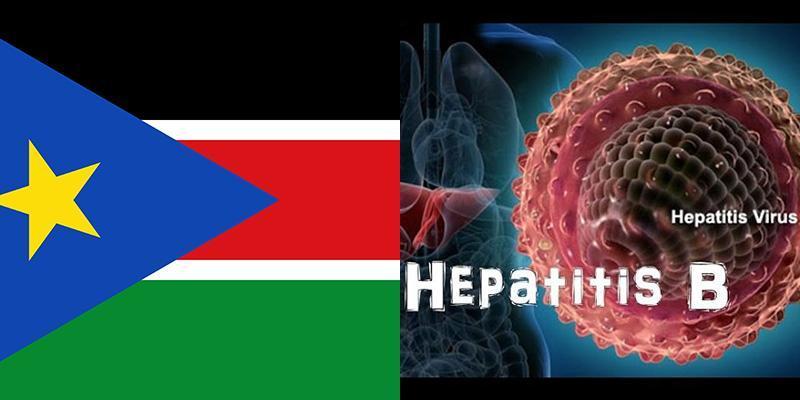Africa-Press – South-Sudan. As South Sudan joins the world in marking World Hepatitis Day, health experts are raising concerns over the growing threat of hepatitis in the country.
As the world marks World Hepatitis Day on July 28, health experts warn that hepatitis remains a silent killer in South Sudan, despite being preventable through vaccination and treatable if detected early.
Matiok Anthony, Executive Director of Friends of Humanity, says the disease is often unnoticed until it’s too late:
he explained “Hepatitis is a silent killer because its early signs like fatigue, abdominal pain, and loss of appetite are similar to common illnesses. The only way to know your status is through testing,”.
South Sudan faces high prevalence rates 9.9% for Hepatitis B and 9.1% for Hepatitis C, according to global health reports.
Experts say Hepatitis B is mostly spread through blood contact, unprotected sex, mother-to-child transmission during delivery, and sharing sharp objects like needles and razors. Hepatitis A and E are mainly linked to contaminated food and water, while Hepatitis D only occurs alongside Hepatitis B.
Anthony warns that cultural practices such as traditional scarification, communal use of sharp objects, and poor infection control have fuelled transmission.
He also highlights that newborn babies from infected mothers face a 90% risk of developing chronic hepatitis without timely vaccination.
he noted that “The first dose of Hepatitis B vaccine should be given within 24 hours of birth, but South Sudan still lacks this birth dose vaccine,”.
Hepatitis can lead to liver cirrhosis and cancer if untreated. While Hepatitis C can be cured within three months, Hepatitis B has no cure but can be controlled with lifelong vaccination and medication.
Friends of Humanity has launched a $2 Fundraising Initiative to establish a Hepatitis Treatment Center at Juba Teaching Hospital, as there is currently no dedicated facility or donor support.
Anthony urged “Hepatitis doesn’t attract donor funding like HIV or malaria. We need citizens to take the lead know your status, get vaccinated, and support this initiative,”.
This year’s theme “If I die, let’s break it down” calls for urgent action to eliminate hepatitis by 2030 through awareness, testing, vaccination, and breaking stigma.
While Dr. Ambrose Anthony, a medical doctor, explains that hepatitis primarily affects the liver and can go unnoticed until severe damage occurs.
he says Hepatitis is a disease of the liver and it’s like a silent killer. Most people don’t know they have it until symptoms appear.
According to Dr. Ambrose, the early signs include, Persistent fatigue and weakness, Yellowing of the eyes (jaundice) and Dark-coloured urine
Abdominal pain and sometimes fever
“These are the major symptoms that signal hepatitis infection,” he notes.
How he says Hepatitis is a viral disease, transmitted mainly through infected blood and body fluids. Common modes of transmission include,
Unprotected sex, Sharing needles (for drug use or unsafe medical practices) and Exposure to infected blood or vomit
Mother-to-child transmission during childbirth
South Sudan’s social habits also increase risks.
Dr. Ambrose warns “Some young people engage in unprotected sex or share sharp objects like needles. These behaviours make them highly vulnerable
Health workers, children, and patients receiving blood transfusions are also at high risk. While blood screening has improved in the country, the risk still exists.
One of the biggest misconceptions, Dr. Ambrose explains, is that a vaccine can cure hepatitis after infection.
he clarifies “If you already have hepatitis, taking a vaccine will not help. It only adds more load on your body. Vaccination is for prevention, not treatment,”
The doctor emphasizes early screening as the most effective preventive measure:
“Know your status. If you test negative, take the vaccine. If positive, start treatment immediately to avoid complications.”
Despite its severity, hepatitis has not received enough attention compared to other diseases like malaria. Dr. Ambrose calls for collaborative action between citizens, health workers, and the government.
he stresses “If the community pushes for services, the government will prioritize them. Eliminating hepatitis needs strategy, planning, and awareness,”
He also appeals for behavioural change among youth “Use condoms during sex and avoid sharing needles. Prevention is easier and cheaper than treatment.”
Dr. Ambrose remains optimistic that with proper awareness, testing, vaccination, and policy support, hepatitis can be eliminated in South Sudan.
He speaks. “More than 95% of hepatitis cases can clear naturally if detected early and monitored. But late detection leads to chronic infection and complications,”
In his final message he clears that
“Screen yourself. Know your status. Take the vaccine if negative, and if positive, seek treatment immediately. Hepatitis is dangerous, but together we can defeat it.”
For More News And Analysis About South-Sudan Follow Africa-Press






